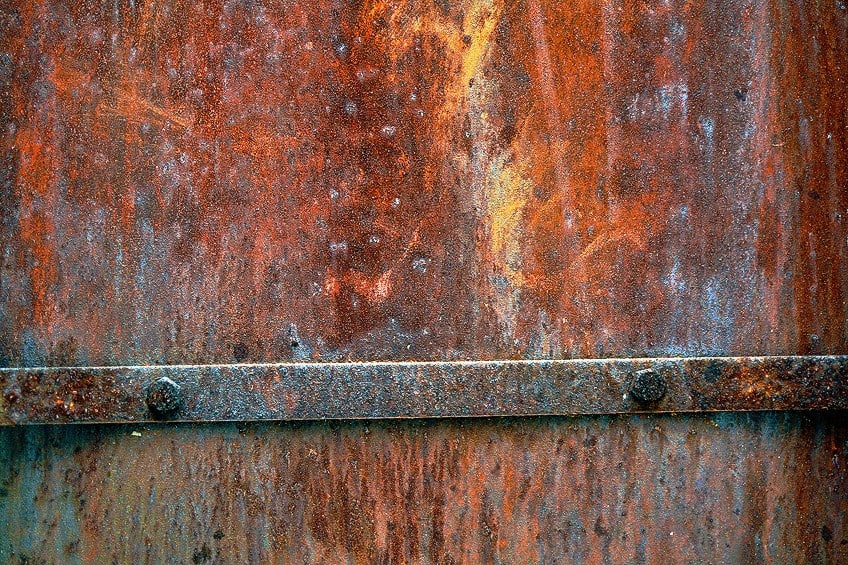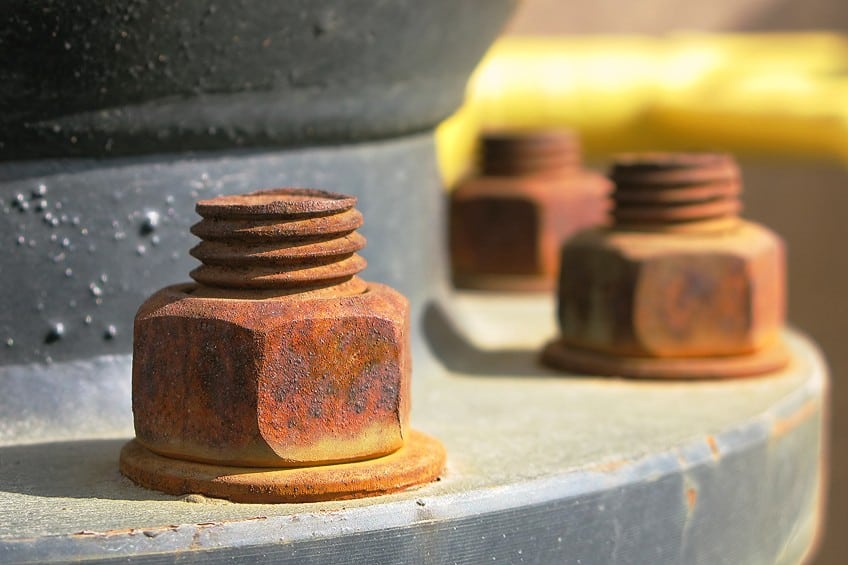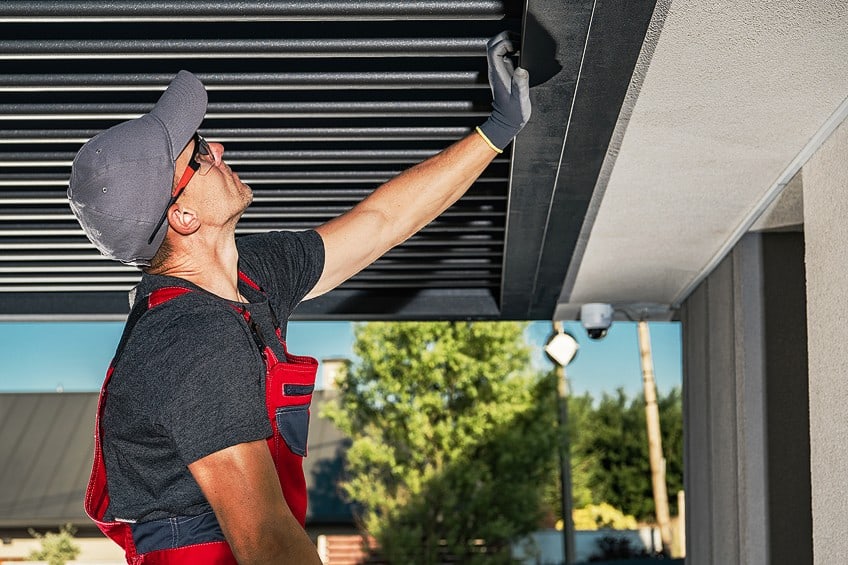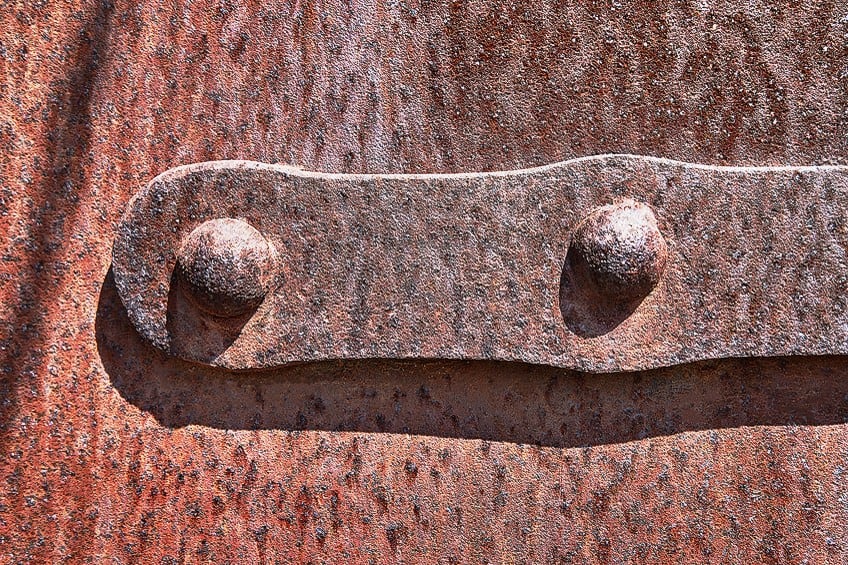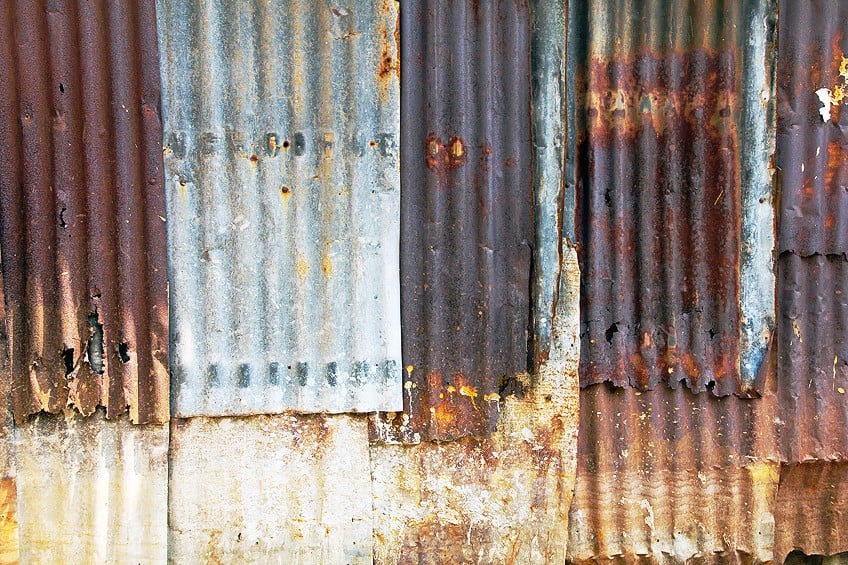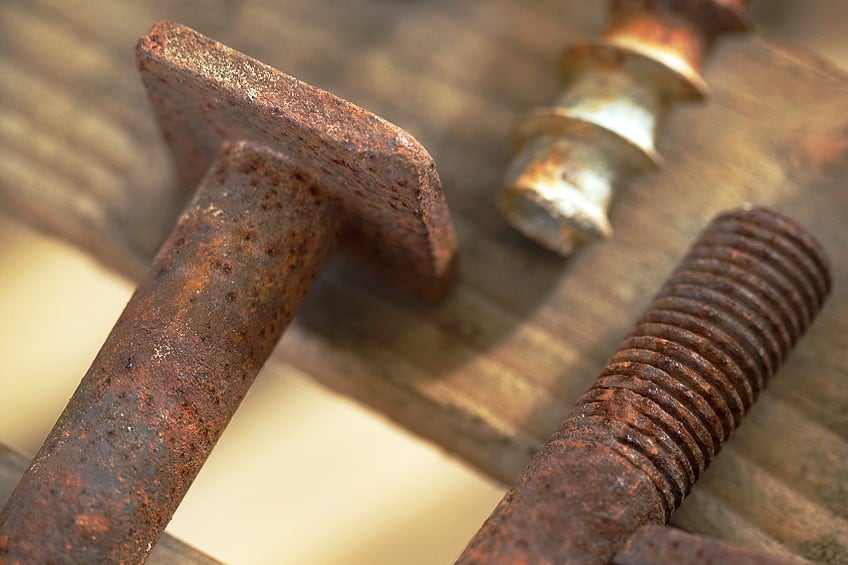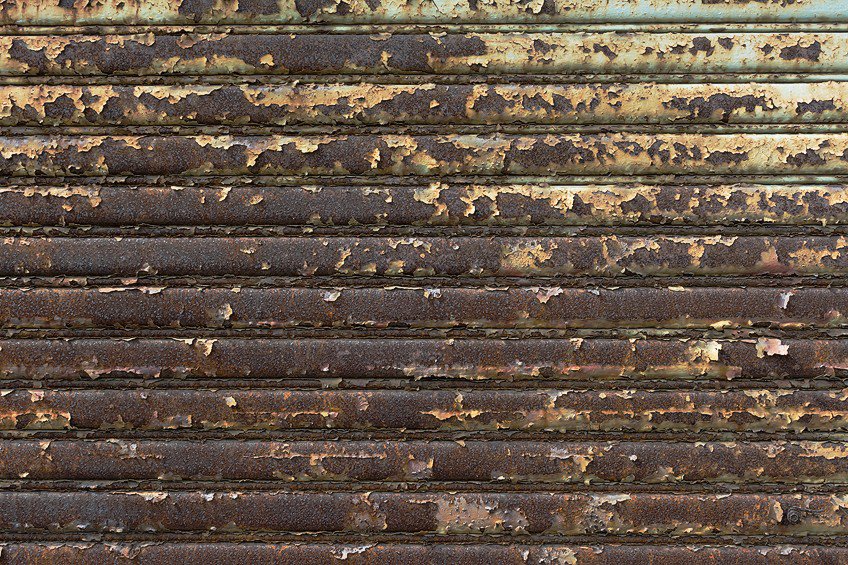Does Aluminum Rust? – Rust-Proof or Rust-Resistant?
This post may contain affiliate links. We may earn a small commission from purchases made through them, at no additional cost to you. You help to support resin-expert.com
Aluminum was discovered all the way back in 1825 by Hans Christian Oersted, a Danish scientist who introduced the world to what was a revolutionary material at the time. These days, aluminum is one of the most widely used metals, thanks to its lightweight and appealing aesthetics, Does aluminum rust though? Let’s have a look at this metal, establish what it is, and find out if it’s capable of rusting the same way other metals do.
Table of Contents
What Is Rust?
The term rust is thrown around often, with terms like patina and oxidation often being used interchangeably. We’d all like to think now that we know rust is because we know it when we see it, but do you actually know what rust is? Rust can form on many metals and is usually referred to as iron oxide in scientific settings. Iron oxide, or rust as it’s commonly known, forms when iron interacts with oxygen, generally in the form of moisture, either liquid water or water vapor. This process is known as oxidation, as the area exposed to the moisture will turn a reddish brown and often warp, flake, and/or weaken over time. This is what the beginning stages of rust look like.
Once the rust has formed, it generally consists of hydrous iron oxides and iron oxide-hydroxide.
Rust is considered to be a form of corrosion that takes place when a metal is left exposed to the elements for too long without treatment or a protective layer being applied to it. Rust can spread from a single area to the entirety of a metal surface if left unchecked. Generally, rust is considered a bad thing, because it negatively affects the structural integrity of metal surfaces. If left unchecked, rust can severely cripple a metal surface, which can lead to breakages, rough edges, rough surfaces, poor joinery, and decreased rigidity of the structure. Rust is almost always seen as a negative and can be challenging to get rid of if allowed to propagate.
Rust doesn’t immediately begin eating away at a metal surface, at least not usually. Rust usually begins as a surface layer that when left unchecked, eats deeper into the metal surface. Surface rust is generally considered easy to remove, and once it has the surface can be resealed. Rust that has begun eating into the surface of the metal can be extremely difficult if not impossible to remove. If a metal workpiece has been consumed internally by oxidation (think of a car that’s been standing outdoors for 20 years without a cover) it is almost always unsalvageable. If only certain portions have been affected, they can be cut out and replaced, but this takes considerable time, effort, and dedication to identify all affected areas, especially if your workpiece is large.
As you can see, rust can quickly become a major problem if not identified and treated quickly.
Does Aluminum Rust?
Aluminum is considered to be one of the best metals out there aside from composite materials like carbon fiber and other cutting-edge materials. One of the best-known characteristics of aluminum metal is that it does not rust, but is this really the case?
Let’s have a look at why aluminum does not appear to rust the way other metals do.
Why Doesn’t Aluminum Rust?
To understand why aluminum doesn’t rust the same way other metals appear to you need to understand some fundamental properties of metals. Metals are divided into two basic types, those that contain iron and those that do not. Metals that contain iron are known as ferrous metals and those that do not contain iron are known as non-ferrous metals. Metals that don’t contain iron will not rust as there is nothing to interact with moisture to cause oxidation. Metals that contain iron are all capable of rusting to a degree, but this depends on the amount of iron present in their composition.
Metals with very little iron in their makeup may never experience the effects of oxidation depending on the environment and forces acting on them.
As you have probably guessed by now, aluminum is a non-ferrous metal, which means it contains virtually no iron content and therefore isn’t affected by moisture, at least not in the same way that ferrous metals are. This means aluminum can be placed in the rain or even submerged without developing rust on its surface or even internally. This is one factor that makes aluminum one of the most popular metals around, especially for outdoor applications that would require other metals to be coated and sealed to avoid damage. This is interesting considering the aluminum is often more expensive to refine and forge, but considering it is virtually maintenance-free, it seems to be well worth it.
Does this mean that aluminum doesn’t rust at all? Well, not really. Aluminum simply doesn’t oxidize the same way that other metals do. While ferrous metals tend to accumulate rust over time, aluminum simply develops aluminum oxide on its surface to ensure. Unlike rust, this can simply be wiped away without any structural damage occurring to your aluminum surface. There are many metals like aluminum that simply do not have the capacity to rust the same way ferrous metals do, but this doesn’t make them perfect materials. Non-ferrous metals often have their own drawbacks that you should consider when choosing them for a project.
However, this makes aluminum and metals like it far better suited to certain applications when compared to ferrous metals.
Factors That Can Affect Aluminum’s Rust Resistance
As we mentioned previously, there is no such thing as the perfect material, and aluminum is no exception. As robust and durable as aluminum is, there are factors that can influence its rust resistance, and if you intend to use aluminum in your next project, it’s best to familiarize yourself with these forces beforehand to avoid accidentally ruining your aluminum altogether.
PH Levels of Water
Does aluminum rust in water? No, but this depends on the nature of the water. While aluminum might not oxidize the same way ferrous metals do when exposed to water, the PH levels of the water it’s exposed to can affect aluminum significantly. If the PH level of the water is too low or too high, it can negatively affect the integrity of your aluminum. Aluminum actually repairs itself when it creates aluminum oxide, but, when the PH level of a given body of water is too high or too low it can prevent the iron oxide from repairing itself and eventually cause the metal to break down entirely.
However, it should be mentioned that this only happens to untreated aluminum when exposed to water with a PH level of below 4.5 and above 8.5.
Galvanization
Galvanization is a process in which metals are strengthened, but this might not always be a good thing. Galvanization is a process in which metals are arranged in a manner that an electrical current passes through them. This process is designed to harden one metal while weakening the other, but due to the inherent nature of aluminum, it is always the metal that is weakened during this process.
Aluminum, therefore, isn’t the best metal to use in the galvanizing process. Ordinarily, galvanization is reserved for iron because it allows it to be coated with zinc. The zinc coating essentially insulates the surface of iron protecting it from the effects of oxidation the same way the epoxy or polyurethane coatings protect wood from external forces.
Excessive Exposure Without Protection
Again, does aluminum rust in water? Not in the same way that iron does, but the damage is still damage regardless of how it looks to the human eye. This means that even though aluminum oxide is capable of self-repair, if your aluminum workpiece is constantly exposed to a hostile environment it will eventually begin to degrade, regardless of how much oxide builds on the surface. How does one protect the surface of aluminum workpieces then? The best way to go about this is to use a paint graded for aluminum to coat the surface of your workpiece and protect it the same way that zinc protects iron in the galvanization process.
That being said, you should ensure you purchase the correct primer for your aluminum workpiece and aluminum paint.
Purity
Purity is something that all metals have in common when it comes to what they are used for. What does it mean when a metal is pure? Purity refers to how refined a metal is, or how little iron (or other undesirable content) is present in its molecular makeup. Metals undergo refinement to make them better suited for certain applications and to grant them certain properties.
Aluminum is capable of being 99% pure, with virtually no iron content present in its composition. This renders pure aluminum nonmagnetic and far more malleable than it usually would be. As you can imagine, this affects the oxidation rate of aluminum when exposed to waters with unsuitable PH levels or plain old water. Pure aluminum does not exist in nature.
Tips for Preventing Aluminum from Rusting
While knowing whether aluminum rusts or not is great, you might be wondering how to prevent your aluminum from oxidizing at all. There are a few things you can do to ensure that your aluminum workpiece doesn’t produce aluminum oxide at all, which can save you some time and money maintaining your surfaces down the line.
Coat Your Aluminum
There are many similarities between wood and metals regarding how they are worked, treated, prepared, and maintained. One similarity that aluminum shares with both wood and other metals is that it is best protected when its surface is not directly exposed to the immediate atmosphere. Coating your aluminum can extend its lifespan dramatically.
How do you coat your aluminum workpiece and what do you coat it with, you ask?
Well, the best way to go about it is by using an aluminum primer and an aluminum paint to coat the surface, which can be applied using a brush, roller, or sprayer depending on the size of your workpiece and how comfortable you are with any of the aforementioned methods.
Do Not Leave Your Aluminum Exposed
As we have established you need to ensure your aluminum workpieces that have not been treated are not exposed to the elements which could cause aluminum oxide to form. The best way to do this is simply not to use your aluminum workpieces outdoors until the appropriate treatment has been applied or until it has been coated with suitable paint. This rule applies to any instance where aluminum oxide can form on the surface of your workpiece, not just exposure to regular water. Ensure your workpiece is not allowed near any moisture with an irregular PH level, do not place it into contact with other metals that could negatively affect it, and do not use it in galvanization processes.
As you can see, aluminum is a unique and interesting metal with many potential applications in and around the home. It can be precarious to care for though, so be sure you understand this metal and how it interacts with other materials and forces before attempting to integrate it into your project. Remember that aluminum is also quite expensive, so be 100% certain before making your purchase.
Frequently Asked Questions
Does Aluminum Rust Outside?
If aluminum is metal and can contain some iron, does aluminum rust outside? Well, yes and no. Aluminum does not rust the same way ferrous metals do, instead, it forms aluminum oxide on its surface which can be wiped away.
Does Aluminum Corrode the Same Way Other Metals Do?
Aluminum can be bent, forged, and even act as a conductor of electricity and heat. Does aluminum corrode too then? Yes, but instead of forming red or brown dust on the surface, aluminum produces aluminum oxide on its surface.
Can Aluminum Oxidize?
If aluminum can be bent, heated, frozen, forged, and even cast, can aluminum oxidize too? Yes, aluminum is capable of oxidizing by forming an aluminum oxide on its surface, which can be wiped away quite easily if needs be.


